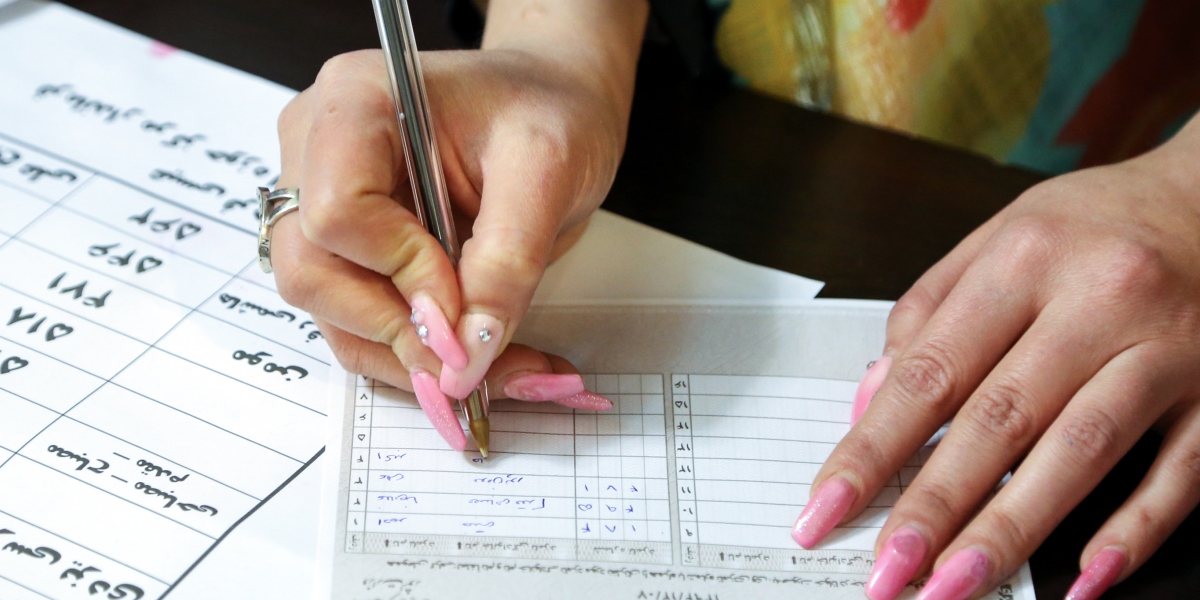
The Illusion of Change In Iran
At the regional level, Iran will continue to aggressively pursue opportunities to increase its influence, at least until Turkey and Saudi Arabia, which are distressed by U.S. President Barack Obama's Middle East policy, are no longer troubled U.S. allies.
Share
On Feb. 26 Iran held elections for the Assembly of Experts, which elects the supreme leader, and for parliament. The fact that millions of Iranians went to the polls for the first time since the nuclear deal raised the election's profile.
According to media reports, moderate reformists affiliated with President Hassan Rouhani and former President Hashemi Rafsanjani won a majority in both houses, which the international community, no doubt, will welcome. After all, Western experts tend to analyze Iranian politics as a three-way battle between reformists, conservatives and pragmatists. When reformists like former President Mohammad Khatami, who called for political liberalization and rapprochement with the West, or pragmatists such as Rouhani win elections, the West often rejoices. When conservative candidates, known as anti-imperialists and anti-Western are victorious, Western observers find the development discouraging.
To be perfectly honest, Iran's public diplomacy team deserves some credit. Whenever Iran holds elections, they persuade the West that the country is at a critical junction. The fact that Iran has a semi-democratic government under Supreme Leader Ali Khamenei's political and ideological control often goes unnoticed.
The Guardian Council of the Constitution, an unelected 12-member body charged with interpreting the law and supervising elections, regularly declares reformist candidates ineligible to run for office. Iranians, nonetheless, are able to talk about change, pretending the Iranian Revolution's ideology has not already become a key component of Iranian nationalism.
To be clear, there were certain differences between Khatami and previous President Mahmoud Ahmadinejad in terms of rhetoric and policy. Iran's foreign policy, however, remains pragmatic no matter who sits in the driver's seat. Paying lip service to promoting the Islamic revolution, the country is no less likely than secular governments to seize opportunities. If anything, the culture deception makes it easier for Iranian officials to remain interest-driven and capable of diplomatic maneuvering. In this sense, it would be unrealistic to assume that major changes will take place in Iran in the post-Khamenei period.
Although the lifting of sanctions might trigger economic growth, which the government could use to partially liberalize domestic politics, Iranian foreign policy will remain immune to change. The country abandoned anti-Western rhetoric after the Arab Spring revolutions and opted to strengthen its cooperation with the West while aggressively expanding Iran's influence over the Middle East. As part of the new game plan, Iranians have been exploiting Shiite sentiments to clash with Sunnis and compete with an emerging alliance between Turkey and Saudi Arabia.
The Syrian civil war provided the perfect opportunity for Iran's leaders to test their instruments of hard and soft power. By suggesting that Iranian citizens fighting the Syrian opposition were clashing with infidels, Khamenei tapped into Iran's radical ideology and religious doctrine to legitimize regional competition. At this point, the world is so preoccupied with radical Sunni jihadists embodied by DAESH that many people are willing to turn a blind eye to the Iranian leadership's pragmatism with a radical twist. Moving forward, Iran will seek to work more closely with the United States, the European Union and Russia by tapping into fears of Sunni radicalism.
At the regional level, Iran will continue to aggressively pursue opportunities to increase its influence, at least until Turkey and Saudi Arabia, which are distressed by U.S. President Barack Obama's Middle East policy, are no longer troubled U.S. allies.
[Daily Sabah, March 2, 2016]
Tags »
Related Articles






